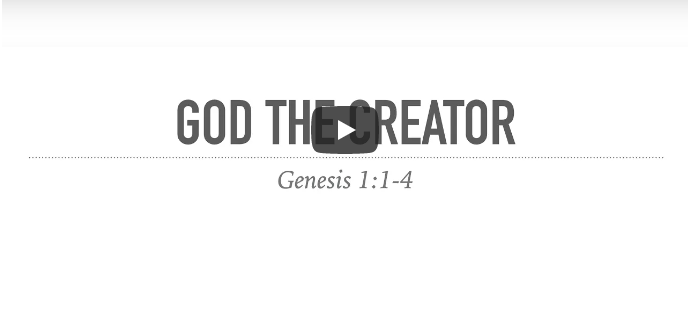There are many accounts that try to explain how we came to be. With so many different accounts competing for our belief in them, we can easily doubt what the Bible tells us. Today, I want to point out the differences between the pagan accounts and the biblical one.
Quotes Below Are From historyworld.net:
“In societies where many tribal groups have coalesced into a single civilization, each bringing their own gods, there tends to be a dramatic series of encounters between the contending deities – sometimes sexual, but more often murderous and even cannibalistic – before humans appear in the story. This is true of Egypt and Mesopotamia, and above all Greece. The mythology of Japan also provides a complex account of the early affairs of the gods, while hardly noticing the arrival of mankind. In the multi-faceted mind of India, several creation stories are able to co-exist.”
Obviously, there are too many accounts to spend a lot of time discussing, but we will examine 4 of them. First up,
Egypt
“There are several creation stories in Egypt, attached to rival gods. The most common one begins with Nun, the primeval ocean, from which Amen rises in splendour. He takes the name Re, thus in effect merging two rival deities. By an act of masturbation (described as such in the temple texts) he produces a divine son and daughter. These two breed a race of gods, while the tears of Amen-Re become mankind – appropriately enough, for man’s behaviour soon persuades the creator to withdraw from earthly affairs. He retires to the heavens, where he reigns as the sun.”
Mesopotamia
“The story begins with two watery tumultuous beings, one male and one female, Apsu (sweet water) and Tiamat (salt water). From their union there come forth a variety of sea monsters and gods. In the ensuing chaos Tiamat, the female creator, tries to take control. Her descendants unite against her, choosing one of their number – Marduk, the god of Babylon – to lead them. Armed with a hurricane and riding a tempest drawn by four fiery steeds, Marduk meets Tiamat and her evil accomplice Kingu in battle. He kills them both.
“He splits the monstrous corpse of Tiamat into two parts. From half of her he creates the heaven, from the other half the earth. In heaven he constructs a dwelling place for his colleagues, the gods. Realizing that they will need a race of servants, he uses the blood of Kingu to create the first man. This is followed by other necessary tasks, such as the creation of rivers, plants and animals.”
India
“In an early story Purusha is a primal man sacrificed by the gods as the act of creation. The sky comes from his head, the earth from his feet, the sun from his eye and the moon from his mind. The four castes of Hindu society also derive from his body… the birds and animals come from the fat which drips from him during the sacrifice.”
China
“Of various creation stories which evolve in China, the most striking is that of P’an Ku. He is hatched from a cosmic egg. Half the shell is above him as the sky, the other half below him as the earth. He grows taller each day for 18,000 years, gradually pushing them apart until they reach their appointed places.
“After all this effort P’an Ku falls to pieces. His limbs become the mountains, his blood the rivers, his breath the wind and his voice the thunder. His two eyes are the sun and the moon. The parasites on his body are mankind.”
The Alternative
Genesis 1:1-4 (NIV): In the beginning God created the heavens and the earth. Now the earth was formless and empty, darkness was over the surface of the deep, and the Spirit of God was hovering over the waters. And God said, “Let there be light,” and there was light. God saw that the light was good, and he separated the light from the darkness.
1). God Created
The beginning signifies an introductory time period, not the first event. God has no beginning, but we are pointed to the creation as our reference for the beginning. God is revealed first as Creator. Before he is revealed as Father, Judge, etc. he is Creator. In particular, he created heaven and earth – everything. God created all the matter that we have used to create technology among other things.
2). God Hovered
This implies the expectation of what’s going to happen next.
3). God Said
God’s word has the power to create something from nothing. God brings order to chaos. And it’s brilliant that God separated the light from the darkness because that is going to be a major theme throughout the Bible (see the Gospel of John).
God also comments that his creation is good. Unlike the other accounts, nothing was created by accident, as the result of violence, or as an after-thought. Mankind is hatched or reproduced from a prior life-form. We are created and God later calls humanity “very good.”
Conclusion
God is the Creator. Since he created everything, he has rights to everything. He gets to be the Lord because he has designed life to operate a particular way. Don’t question why you aren’t in charge. Submit to the Lord since he is creator.
“Worship him who made heaven and earth, the sea and the springs of water” (Rev 14:6, ESV).
Tweet
Check out other videos from John Stapleton
Try Audible Premium Plus and Get Up to Two Free Audiobooks
[…] Click Here To Listen To Part One God The Creator by John Stapleton […]